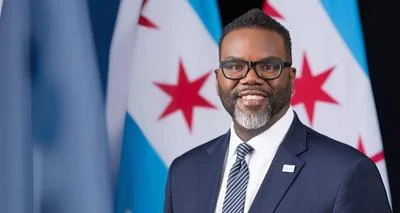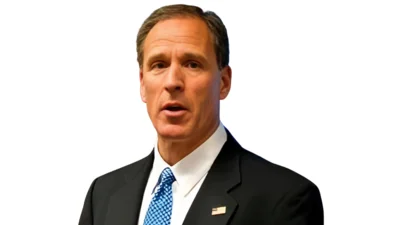Congressman Danny K. Davis | Congressman Danny K. Davis website
Congressman Danny K. Davis | Congressman Danny K. Davis website
Chair Graves, Ranking Member Larsen, and Members of the Committee. I thank you for the opportunity to share with you one of my key policy priorities for the reauthorization of the Federal Aviation Administration (FAA) law. As Congress considers the FAA reauthorization, I respectfully ask your leadership in addressing the racial and ethnic disparities in aviation.
Being an aircraft pilot is an in-demand, high-paying profession, with the median annual wage for a commercial pilot being over $134,000.[1] Unfortunately, the aviation industry is impressively homogenous. According to the Bureau of Labor and Statistics, 95.7% of aviation pilots and engineers in 2022 were White with only 9.7% being Hispanic/Latino, 2.6% being Black, and 1.6% being Asian.[2] Approximately 90.8% of aviation pilots and engineers are men.
Congress has an opportunity to help individuals enter aviation careers while increasing the diversity of the field. The high cost of pilot training is a key barrier to entering the profession, especially for people of color. Pilot training can cost between $80,000 to $100,000. Substantial federal investment is required to help address the immediate need to increase the aviation workforce with a focus on individuals currently underrepresented in the profession. The Aviation Workforce Development Grants program invests in training and diversification of aircraft pilots and aviation maintenance workers. In FY23, the aircraft pilot program and the aviation maintenance program received only $5 million and $10 million, respectively. Support in the House for these programs was evident last year when my amendment to increase funding for the Aviation Workforce Development Grants passed during Floor consideration of the Transportation Appropriations bill.
Further, I ask that the Committee improve pilot diversity by including language to expand partnerships with Historically Black Colleges and Universities, Tribal Colleges and Universities, and the five Minority Serving Institutions, including: Asian American Native American Pacific Islander-Serving Institutions; Alaska Native and Native Hawaiian Serving Institutions; Hispanic Serving Institutions; Native American-Serving Non-Tribal Institutions; and Predominantly Black Institutions. These institutions have expertise in educating and graduating low-income students of color. Indeed, such partnerships have helped diversify many important fields, including defense, science, and technology. Collaborating with these institutions is an effective way for aviation policy to target grants to students from racial/ethnic backgrounds with financial need.
In closing, I want to recognize my friend and colleague, Representative Hank Johnson from Georgia, for his leadership on diversifying aviation education. I urge my colleagues to use your leadership on aviation policy to help individuals enter aviation careers while increasing the diversity of the field. Thank you for this opportunity to share my viewpoints.
Original source can be found here.






 Alerts Sign-up
Alerts Sign-up